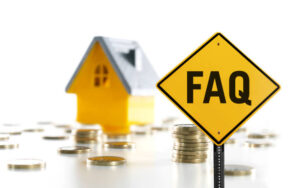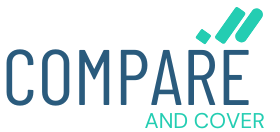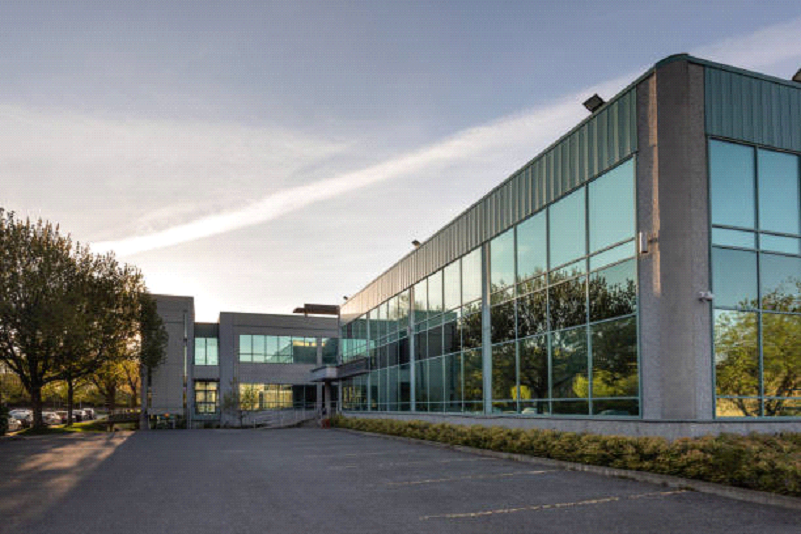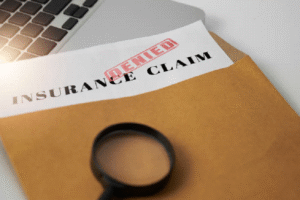Owning a home or building that’s sitting empty might seem like a peaceful, low-maintenance situation—no noisy tenants, no unexpected repairs…right? But an unoccupied property can come with unique risks that homeowners often overlook. Without the right insurance, a vacant home or investment property left alone might open you up to costly problems like vandalism, water damage, even legal issues if someone gets injured.
That’s where unoccupied property insurance comes in. If your property is going to be vacant for 30 days or more, this specialized coverage could save you from financial headaches and protect your investment.
Let’s unpack what unoccupied property insurance covers, why it matters, and how to pick the best policy.
🔍 What Is Unoccupied Property Insurance?
Standard homeowners insurance policies generally expect you to live in the covered property. If a home is vacant for too long—usually between 30 to 60 days—coverage may be limited or even dropped entirely. That’s where unoccupied property insurance steps in: it fills the gap.
Designed for:
-
Homes you’re between tenants
-
Vacation properties left empty part of the year
-
Properties in probate or foreclosure
-
Houses awaiting renovation or sale
This insurance protects against the specific risks that come with an unattended property—such as vandalism, weather damage, or unauthorized access—while giving you legal and financial security.

🛡️ Why You Need It: Risks of Leaving a Property Vacant
1. Vandalism and Break-Ins
Empty homes are often targeted by vandals, squatters, or thieves. Broken windows, graffiti, stripped wires, and stolen appliances are common risks. With nobody around, small problems go unnoticed and unresolved.
2. Undetected Damage or Maintenance Issues
Even minor issues—like a slow leak, a broken pipe, or damaged roof flashing—can become major repairs if left unattended. Water damage, mold growth, and structural issues often start small but quickly escalate in empty homes.
3. Liability Risks
What if someone slips in an icy driveway or explores your vacant home and gets injured? Without proper insurance, you could be on the hook for legal bills, medical expenses, and court settlements.
4. Mortgage and Lender Requirements
Many lenders require unoccupied property coverage if your property is sitting empty. It’s part of their risk mitigation strategy—and a way to ensure their investment is protected.
5. Preserving Your Investment
Vacant properties can degrade faster without regular oversight. With good insurance in place, you also gain time and support to address issues before they spiral into costly repairs.
📝 What Unoccupied Property Insurance Usually Covers
While details vary by provider, most policies include:
🧱 Vandalism and Malicious Damage
Repairs after graffiti, broken windows, forced entry, or intentional destruction.
🌨️ Weather and Storm Protection
Costs related to wind damage, hail, frozen pipes, overflow, and burst plumbing.
🚱 Water and Plumbing Issues
Damage from leaks, broken pipes, or accidental water discharge—especially in freezing weather.
🔥 Fire and Explosion
Coverage for fire damage, lightning, and explosions—even without anyone home.
🛡️ Liability insurance
Protects you if someone gets injured on your vacant property and opens a claim.
🔑 Theft Coverage
Covers stolen items—if your home is furnished and you’ve included contents coverage.
📌 Optional Add-Ons to Enhance Protection
Depending on property type and location, you may want these extras:
-
Squatter/legal expenses: Help if you need to remove unauthorized occupants.
-
Flood or earthquake coverage: Essential in high-risk areas—often not included in standard policies.
-
Mold, mildew, sewage backup protection: Covers restoration costs in these messy situations.
-
Building ordinance coverage: Helps with expenses related to bringing buildings up to current codes.
-
Rental income protection: Reimburses lost rental income if the property is uninhabitable due to damage.
-
Property inspection coverage: Ensures regular inspections are part of the policy to validate the warranty.

🔍 How to Choose the Right Policy
Selecting coverage that fits your needs and budget involves a few key steps:
1. Notify Your Insurer in Time
Let your insurance company know when the property becomes vacant—even if temporarily. Failure to do so could void your policy if a claim arises.
2. Understand the Vacancy Period
Most insurers define a “vacant” property after 30 to 60 days unoccupied. Know your policy’s threshold to avoid a gap in coverage.
3. Review Vacancy Clauses and Exclusions
Check for any specific exclusions—like none for mold, pests, or unrepaired damage once discovered. Ask how long you have to fix a problem before coverage stops.
4. Shop Around
Get quotes from multiple providers. Compare not only premiums, but also:
-
Coverage limits
-
Deductibles
-
Claim process (how fast they pay? do they require inspections?)
-
Customer service and claims reputation
5. Add On What You Need
If your property is in a flood zone, add flood coverage. If there’s a mold history, add mildew protection. The risk level of the property should guide your choices.
6. Budget for Maintenance
Policies may require routine checks (monthly inspections, winterizing). Factor these into your cost analysis—and don’t skip them.
7. Bundle When Possible
Insurers may offer discounts if you bundle homeowner, auto, and vacant home policies. It saves time and money.
💡 Tips to Lower Premiums on Unoccupied Properties
Unoccupied property insurance can cost more than a homeowner’s policy, but these steps can help you save:
-
Increase your deductible: Higher deductibles reduce premiums—just ensure you can pay the out-of-pocket cost in case of a claim.
-
Improve security: Install alarms, deadbolts, security lighting, or window locks—many insurers offer lower rates for these.
-
Let them inspect: Periodic inspections may be required—have a plan to handle that cost.
-
Keep documentation: Photos and receipts can help speed up claims and avoid disputes.
-
Stay proactive: Fix minor damage right away, clear snow, and maintain your property to avoid compounding issues.
-
Bundle policies: Save money by keeping your various policies with the same insurer.
🏡 Who Should Consider Unoccupied Property Insurance?
If any of the following apply to you, this coverage could be critical:
-
You own a rental your tenants moved out of
-
You have a home between residents or in probate
-
You own a vacation or remote property used seasonally
-
You’re renovating a house before resale or renting
-
Your lender requires it, and your home will be empty for months
If you live in the property full-time, you likely don’t need this coverage—just a good homeowners or landlord policy.
🤔 Common FAQs on Unoccupied Property Insurance
Q: How long can a home stay empty before coverage lapses?
A: Most policies specify 30 to 60 days without occupancy before the vacancy clause applies.
Q: Do I need regular inspections?
A: Usually, yes. Some policies require monthly inspection reports or winter checks to be valid.
Q: Does policy cost vary by property type?
A: Yes—older, larger, or higher-value homes cost more to insure. Location risk (like crime or weather) also affects price.
Q: Will renters insurance cover a vacant property?
A: No—renters insurance covers belongings, not unoccupied structures.

✅ Final Thoughts: Protect What Matters
Owning an empty property isn’t a free ride—it comes with hidden risks and costs. That’s why unoccupied property insurance is essential if your property is going to be vacant for more than a month. This coverage keeps you protected from vandalism, weather damage, liability, and potential lender issues—without risking your investment.
Before you fill out a policy, take the time to:
-
Tell your insurer the property will be vacant
-
Choose coverage and add-ons that match your property’s risk
-
Maintain inspections and take care of small issues early
-
Compare quotes and consider bundling
Ready for peace of mind? Unoccupied property insurance can save you from financial and legal surprises—because even an empty home deserves protection.





